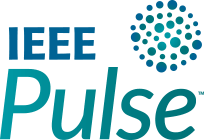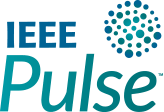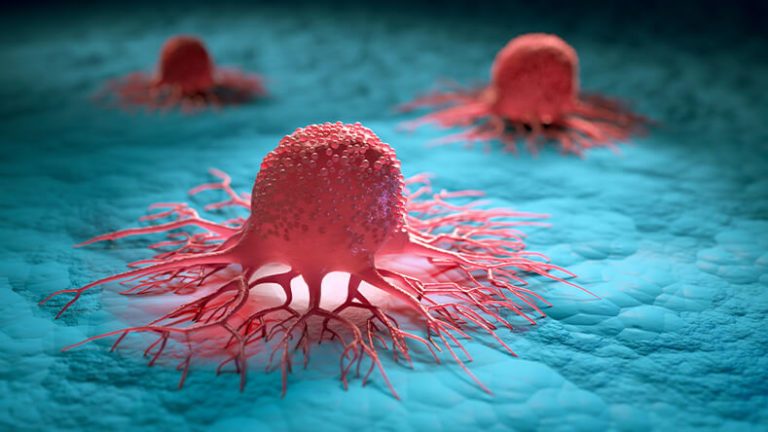Moonshot-supported research has made progress in lowering cancer mortality rates, and this new initiative prioritizes diversity in research with a goal of ending cancer as we know it
The Obama Administration launched the Cancer Moonshot in 2016 to accelerate aspects of cancer research, with then-Vice President Biden in charge of “mission control.” With the signing into law of the 21st Century Cures Act, the U.S. Congress authorized $1.8 billion in funding for the Cancer Moonshot over seven years starting in 2017. The National Cancer Institute (NCI) has invested those funds in more than 240 research projects and 70 programs in research priority areas including improving the understanding of cancer, encouraging collaboration and data sharing, and addressing cancer disparities [1].
Moonshot-supported research has made remarkable progress over a short time period, according to Douglas Lowy, principal deputy director of NCI (Figure 1). “Over the last few years, there has been a substantial decrease in cancer mortality rates,” he says. “However, they are still much higher than we would like them to be.”
In February 2022, President Biden announced new efforts to build on this momentum and extend the Cancer Moonshot to achieve new goals: reducing cancer mortality by 50% in the next 25 years and improving the lives of people with cancer and cancer survivors. This next phase emphasizes steps Americans themselves can take, such as resuming cancer screenings missed during the pandemic and participating in research. Another priority is supporting diversity at all levels of cancer research and care to help ensure better outcomes for all Americans [2].

Figure 1. Douglas Lowy, principal deputy director of the National Cancer Institute. (Photo courtesy of NCI.)
Goals within reach
The overarching aim of this next phase of the Cancer Moonshot is to “end cancer as we know it for all,” says Lowy. “This does not mean there will be no more cancer. Instead, it means a dramatic change in the experience of cancer and the opportunities that people have for cancer care.”
One area of focus is refractory cancers, those that do not respond to treatment. Lowy says that while progress has been made in reducing deaths from certain cancers (such as lung cancer and childhood leukemias), mortality rates have changed little in the last 30 years for others (such as pancreatic cancer and glioblastoma).
Moonshot-supported programs are helping to change the prognosis for some of the deadliest cancers. For instance, only 3.2% of all new cancer cases each year in the United States are pancreatic cancer, yet it is the third most common cause of cancer-related mortality. The Cancer Moonshot funded translational studies conducted by the Pancreatic Cancer Microenvironment Network (PaCMEN). The findings of several of these studies have led to new clinical trials.
Another initiative of the next phase of the Moonshot is the NCI Multi-Cancer Detection Test Vanguard Study. In 2024, NCI will begin enrolling 24,000 volunteers for this 4-year pilot study. The results will inform the design of a larger randomized controlled trial involving about 225,000 people. The study will evaluate whether the benefits of such tests, which miss about half of early cancers and generate many false positives, outweigh the harms. The study will address if early detection with this method actually leads to better outcomes and more lives saved. [3]
Ensuring equity
The theme of equity runs throughout the original Cancer Moonshot as well as its next phase. “We know there are many aspects of cancer care—that includes prevention, screening, diagnosis, and treatment—where access is limited,” says Lowy. “An important component of the Moonshot is to make cancer care more accessible for everyone.”
One effort to support this goal involves including more people in expanded cancer clinical trials. Currently, only a small percentage of people with cancer participate in clinical trials. NCI wants to make it easier for cancer patients from all backgrounds to participate. Increasing the number and diversity of people participating in cancer clinical trials will ensure that new approaches to preventing and treating cancer work for all patients.
Another area where improvements can be made is in cancer screening. There are large differences in access to cancer screening and prevention due to gender, race and ethnicity, geography, and socioeconomic status. These disparities were exacerbated during the COVID-19 pandemic. Several ongoing Moonshot programs are working to improve the reach of proven cancer screening modalities where they are lacking, through strategies including telehealth and direct community engagement.
Cancer Moonshot Scholars program
A priority of the Cancer Moonshot is to nurture the next generation of scientists and health innovators working in cancer research and to develop a research workforce that is representative of the U.S. population. The Cancer Moonshot Scholars program was created to advance these goals [4].

Figure 2. Sanya A. Springfield, director of the NCI Center to Reduce Cancer Health Disparities. (Photo courtesy of NCI.)
The Moonshot Scholars is an early-career grant program that seeks to improve the diversity of applicants for NCI R01 grant funding. The program will provide grants to early-stage investigators from diverse backgrounds, including those from groups identified as underrepresented in biomedical, clinical, behavioral, and social sciences research [5].

Figure 3. Tiffany Wallace, program director of the NCI Center to Reduce Cancer Health Disparities. (Photo courtesy of NCI.)
“While NCI has long been committed to promoting workplace diversity, there remains a stark, disproportionate gap in NCI R01 grants received by individuals from underrepresented groups,” says Sanya A. Springfield, director of the NCI Center to Reduce Cancer Health Disparities (Figure 2). “Eliminating this gap is a priority for our Center, as well as for the entire Institute.”

Figure 4. LeeAnn Bailey, chief, Integrated Networks Branch, NCI Center to Reduce Cancer Health Disparities. (Photo courtesy of NCI.)
There are no restrictions on the type of research proposed, other than that the research aligns with NCI’s mission and addresses any of the broad areas of cancer research, including cancer biology, cancer prevention, cancer diagnosis, cancer treatment, and cancer control.
Tiffany Wallace, program director of the NCI Center to Reduce Cancer Health Disparities (Figure 3), says the Institute expects to award 45 new grants to Moonshot Scholars over the next three years. “The program plans to support a group of meritorious, diverse early-stage investigators that represent the best and brightest of the next generation of cancer researchers,” she says.
In addition to diversifying the backgrounds of cancer researchers, the program aims to increase the diversity of thoughts and approaches to cancer research. Diversity at all levels contributes to excellence in research training environments and strengthens the research enterprise, according to LeeAnn Bailey, chief, Integrated Networks Branch, NCI Center to Reduce Cancer Health Disparities (Figure 4). “A biomedical research workforce that capitalizes on the full spectrum of the nation’s skills, talents, and viewpoints is essential for solving the complex health challenges facing humanity, including cancer,” she says. “Additionally, the involvement of individuals with diverse cultural perspectives has been shown to be essential to reach diverse communities and make advancements in addressing cancer health disparities.”
Springfield says the long-term hope is that the Moonshot Scholars program will help develop and advance the next generation of diverse, independent cancer researchers—and that doing so may have beneficial ripple effects. “We also can envision and would love to see the program result in some even longer-term, indirect benefits, such as an increase in the number of underrepresented investigators in senior faculty and leadership positions and a measurable increase in mentoring of graduate students, postdocs, and junior investigators by independent investigators from underrepresented groups.”
Opportunities for improvement
Bailey says that while the Moonshot Scholars program is a pivotal step toward increasing workforce diversity, much remains to be done. “We maintain that a multi-faceted approach and continuing support will be required to create and sustain the diversity that is needed,” she says.
Lowy is hoping for continued financial support for the Scholars and other Moonshot initiatives. The last of the current Moonshot funds will be distributed in 2023. Lowy says NCI hopes that Fiscal Year 2024 will come with substantial funding for the reignited Cancer Moonshot. “There are tremendous opportunities to yield a really good return on investment,” he says. “The opportunities for helping people prevent cancer, detecting it earlier, and improving the outlook for those who develop cancer are simply unparalleled. Thirty years ago, we didn’t have the tools that we have now.”
The overall cancer death rate has declined significantly over the past three decades. “Cancer mortality rates have gone down faster in the last ten years than any other time,” says Lowy. “And it’s because of improvements in prevention, screening, and treatment. However, cancer still kills more than 600,000 people every year in the U.S. There is much more room for improvement.”
References
- D. S. Singer, “A new phase of the cancer moonshot to end cancer as we know it,” Nature Med., vol. 28, pp. 1345–1347, Jun. 2022. [Online]. Available: https://www.nature.com/articles/s41591-022-01881-5, doi: 10.1038/s41591-022-01881-5.
- National Cancer Institute. (Sep. 11, 2022). About the Cancer Moonshot. [Online]. Available: https://www.cancer.gov/research/key-initiatives/moonshot-cancer-initiative/about
- J. Kaiser, “Biden’s ‘reignited’ cancer moonshot would develop blood tests to detect cancer and vaccines to prevent it,” Science, Feb. 2022. [Online]. Available: https://www.science.org/content/article/biden-s-reignited-cancer-moonshot-would-develop-blood-tests-detect-cancer-and-vaccines, doi: 10.1126/science.ada0900.
- About the Cancer Moonshot. Accessed: Oct. 20, 2022. [Online]. Available: https://www.cancer.gov/research/key-initiatives/moonshot-cancer-initiative/about
- Cancer Moonshot Scholars. Accessed: Oct. 25, 2022. [Online]. Available: https://www.cancer.gov/about-nci/organization/crchd/diversity-training/cancer-moonshot-scholars-diversity-program



